Hikers, travellers, and lovers of the outdoors would agree – Canada is one of the best destinations in the world for hiking. From the Rocky Mountains in the west to Newfoundland’s eastern cliffs, Canada is a beautifully vast and unique country filled with endless corners to explore. So grab your hiking boots and walking poles, because Canada is home to some of the best long-distance hiking trails you absolutely must add to your bucket list.
Ranging in length and difficulty, here are some of the most renowned long-distance hiking trails in Canada and why you should consider tackling them.
1. The Bruce Trail – Ontario
Easily the most famous hiking trail in Canada, the Bruce Trail follows along the edge of Ontario’s Niagara Escarpment, one of the 13 UNESCO World Biosphere Reserves in the country. Starting at the Niagara River and spanning more than 890 kilometres (553 miles) to Tobermory, this trail typically takes at least 30 days to complete. However, hikers are fere to walk at their own pace. End-to-end hikers need to be self-sufficient and experienced, meaning tackling the entire trail in one go is not recommended for beginners. Many hikers opt to tackle the trail in sections at a time, completing the entire thing in a matter of months or years. Regardless of how or when you complete the trail, be sure to send in your hiking logs and collect your End-to-End badge, issued only to those committed hikers who successfully complete the entire Bruce Trail.
- Start/End: Queenston to Tobermory, Ontario
- Length: 890 kilometres (553 miles)
- Difficulty: Hard
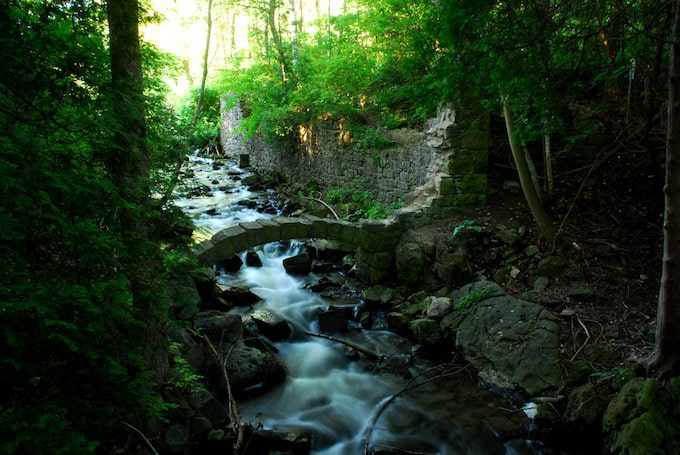
2. The Confederation Trail – Prince Edward Island
In 1989, Prince Edward Island’s railway was abandoned. Instead of leaving it to disappear, however, islanders saw the opportunity to create something people could enjoy – and the Confederation Trail was born. The entire rolled stone dust trail covers 435 kilometres (270 miles) of rolling hills, quaint villages, and beautiful seascapes. With gentle gradients and easy to follow paths, the Confederation Trail is a leisurely experience, perfect for hikers of any skill level. Because parts of the trail can become isolated, driving to accommodation from the trail is necessary, and while many people use the trail for hiking, it’s also a perfect opportunity to bike as well. The longest stretch from tip-to-tip spans across the entire province, covering 273km from Tignish to Elmira.
- Start/End: Tignish to Elmira, Prince Edward Island
- Length: 435 kilometres (270 miles)
- Difficulty: Easy
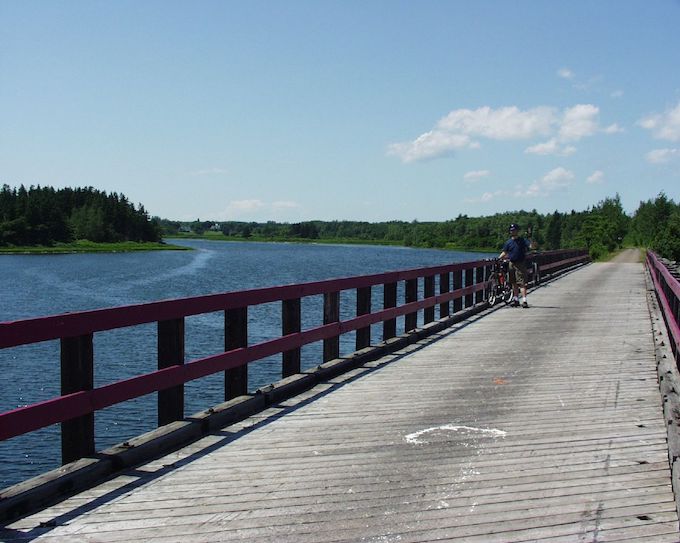
3. Rideau Trail – Ontario
Totalling a stunning 400 kilometres (249 miles) between Ottawa and Kingston, the Rideau trail is a popular hiking route for locals and visitors alike. This network of trails encompasses mix-wood forests, charming towns, vibrant birdlife, Canadian shield lakes, and historic sites, mixing in a little bit of everything for hikers to enjoy. Whether you visit for a few hours or the full two weeks necessary to complete the end-to-end accomplishment, you won’t be left disappointed. Great for mildly experienced hikers this trail has difficult aspects, but for the most part, is extremely manageable. The Rideau Trail website has tons of resources available for hikers looking to plan their expedition, from where to camp to current trail conditions, so be sure to use the available resources to plan your trip.
- Start/End: Kingston to Ottawa, Ontario
- Length: 400 kilometres (249 miles)
- Difficulty: Moderate
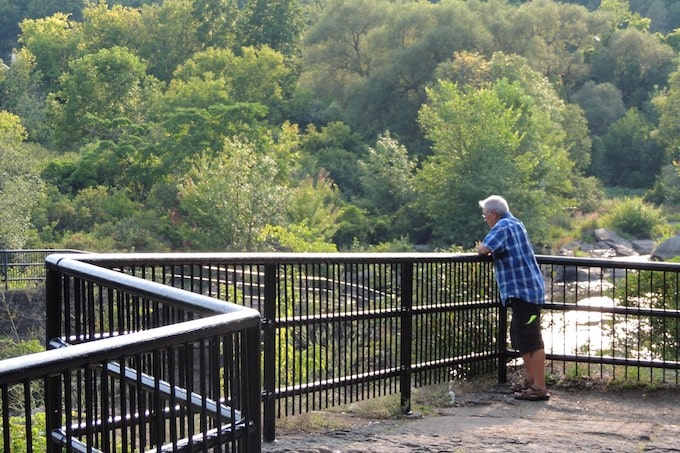
4. The West Coast Trail – British Columbia
Don’t be fooled by this “short” hike – the West Coast Trail is one of the biggest and most challenging experiences a hiker can have in Canada. This 75 kilometre (47 miles) trail, originally called the Dominion Lifesaving Trail, is an epic backpacking route that follows along the southwestern edge of Vancouver Island. Winding through rainforests, along beaches, through rivers, and up ladders, this infamous trail can take anywhere from five to seven days to successfully complete. Built in 1907 to rescue survivors of shipwrecks, this trail is very isolated, meaning hikers need to be self-sufficient, physically fit, and mentally capable of tackling the trail. It’s not easy, but the views and bragging rights are definitely worthwhile.
- Start/End: Bamfield to Port Renfrew, British Columbia
- Length: 75 kilometres (47 miles)
- Difficulty: Hard
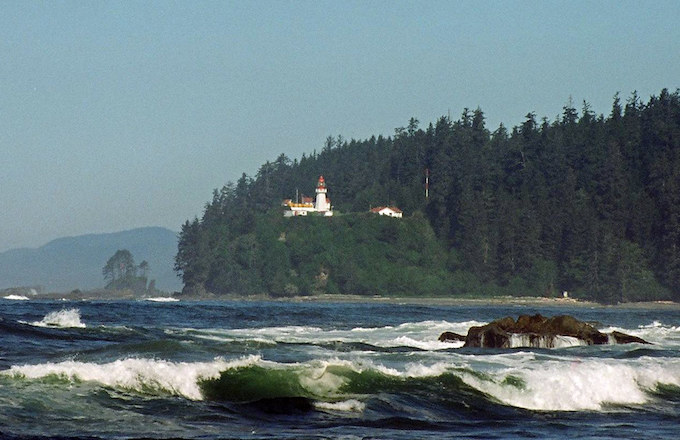
5. Waskahegan Trail – Alberta
Hidden in plain sight, the Waskahegan Trail encompasses over 40 routes ranging from five to 15 kilometres (3 to 9 miles) long, looping perfectly around the city of Edmonton. To complete the entire loop, you’ll pass through over 300 kilometres (186 miles) of private and public land, meticulously maintained by devoted volunteers. Typically taking two weeks to complete, the trail offers public camping areas and accommodation near the trails in towns close by, including Edmonton. From elk to bison and farmers’ cattle, the wildlife is always just around the corner, and the views through Alberta’s countryside make the walk enjoyable from start to finish.
- Start/End: Edmonton to Edmonton, Alberta
- Length: 309 kilometres (192 miles)
- Difficulty: Moderate
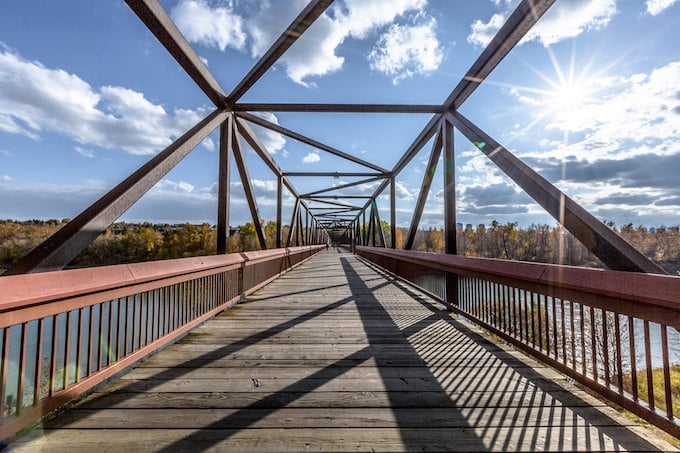
6. East Coast Trail – Newfoundland
The East Coast Trail is a massive hiking route along the east coast of Newfoundland, spanning from Cape St. Francis on the Avalon Peninsula, all the way to Cappahayden. This 265 kilometre (165 miles) trail is well-marked and maintained, making it a great trail for beginner hikers looking to test their abilities. Whether you pitch a tent at the campsites or opt for the comfort of a bed and breakfast, you’ll enjoy the hospitality and grace of Newfoundland’s welcoming locals. This two to three-week adventure will show off Newfoundland’s adorable lighthouses, fluttering puffins, and in the distance, massive whales cruising through the Atlantic. From start to finish this trail offers an abundance of beauty so unique, you won’t experience it anywhere else.
- Start/End: Cape St. Francis to Cappahayden, Newfoundland
- Length: 265 kilometres (165 miles)
- Difficulty: Easy
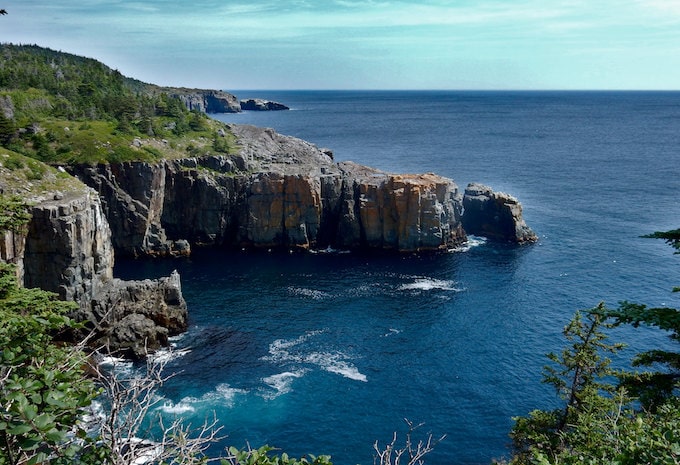
7. Sea to Sky Trail – British Columbia
The Sea to Sky Trail is one of the most authentic hiking experiences in Canada, following the traditional trade routes used by the Squamish First Nations. Starting in Squamish, passing through Whistler, and ending in D’arcy, this trail covers some of the most beautiful parts of British Columbia. While parts of the trail are still under construction, soon the entire pathway will be easily marked, making for an amazing experience for anyone who embarks on this wonderful multi-day hiking route. Some of the trail’s most notable highlights include Brandywine Falls and the Calcheak Suspension Bridge, among other historic landmarks left along this trade route.
- Start/End: Squamish to D’arcy
- Length: 180 kilometres (112 miles)
- Difficulty: Moderate
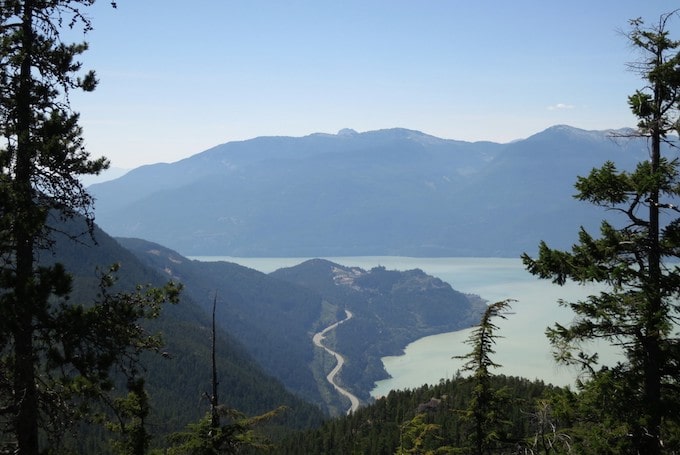
From expansive oceans, dense forests, craggy cliffs, and everything in between, you’d be hard-pressed to find a better hiking destination than Canada! Remember: no matter which trail you choose, make sure to prepare properly, keep an eye on trail conditions, and do your research!
Have you attempted any of these hikes? Tell us all about it!


